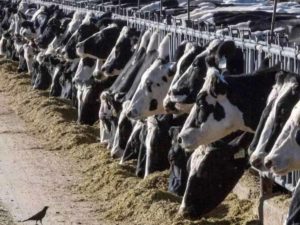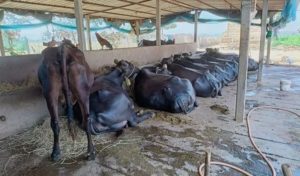The animal husbandry infrastructure development fund of Rs 15,000 crore announced by finance minister Nirmala Sitharaman on Friday will raise capacity in the Indian dairy industry by 50 per cent.
Currently, India has a dairy capacity of 100-110 million litres of milk and milk-based products, of which Gujarat Cooperative Milk Marketing Federation (GCMMF), also known as Amul, holds 38 million litres capacity. This, said federation’s managing director R S Sodhi, will go up by another 50 million litres in the country as a result of the animal husbandry infrastructure development fund of Rs 15000 crore.
“Utilisation of the fund will lead to employment generation for over three million people in the rural economy and will boost production and exports of several value added products,” Sodhi told Business Standard.
The fund aims to support private investment in dairy processing, value addition and cattle feed infrastructure.
The finance minister also said that incentives will be given for establishing plants for export of niche dairy products.
Animal husbandry and dairy experts believe the fund will provide a breather for many cooperative dairies as well who are in need of a revamp in their plants. “They anyway need an upgradation and since cooperatives cannot keep profits, their machines are depreciating and they need to compete with private dairies through their dairy and cattle feed plants,” said economist and leading advocate in agri-food sector Vijay Sardana.
According to Sardana, there would be roughly 170-180 such dairy and cattle feed plants run by cooperatives in the country that could benefit from the fund.

Sodhi welcomed the government’s scheme for interest subvention at two per cent per annum to dairy cooperatives for 2020-21 which is aimed at unlocking Rs 5000 crores additional liquidity, benefitting 20 million farmers. “The government’s move to including animal husbandry and dairy for issuance of kisan credit cards will also help GCMMF’s 3.6 million farmer members as they can now avail loan for upto Rs 3 lakh,” he said.
Sitharaman lauded the dairy cooperatives in the country for procuring more milk from farmers during the lockdown when demand had fallen by 20-25 per cent. Dairy cooperatives procured 56 million litres per day (mlpd) during the lockdown as against a daily sales of 36 mlpd, with a total of 1.11 billion litres additional procurement ensuring payment of Rs 4100 crore to dairy farmers.
Of these, Amul alone procured three million litres more in the last 50 days of lockdown and paid some Rs 800 crore for the same. “We procured overall 25 million litres in the lockdown thereby pumping in Rs 6,000 crore into the rural economy as payments, which include three million litres worth Rs 800 crore additional procurement from farmers,” Sodhi added.
National Animal Disease Control Programme for Foot and Mouth Disease (FMD) and Brucellosis was also launched with a total outlay of Rs 13343 crore ensuring 100 per cent vaccination of cattle, buffalo, sheep, goat and pig population of 530 million animals. While 15 million cows and buffaloes have been tagged and vaccinated so far, Sodhi said the programme will prevent an annual loss of Rs 60,000 crore in milk and milk products in the country due to FMD and Brucellosis.
However, Sardana termed the announcement a repeat of the ruling National Democratic Alliance (NDA)’s earlier cabinet decision at the beginning of its second term.
Meanwhile, Sodhi said the cooperatives have also urged the government to do away with the two per cent tax deducted at sources (TDS) on cash payments made to farmers which is yet to be announced.
Animal husbandry infrastructure development fund of Rs 15000 crore
India’s current capacity of 100-110 million litres of milk and milk based products
To grow by 50 million litres or 50% as a result of the fund
Amul procured additional 3 million litres during lockdown
Amul paid Rs 6000 crore including additional Rs 800 crore










